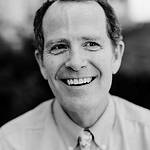
Special Issue
CRASE
Bright Future or Cautionary Tale? How the Bay Area Shapes the Future of the U.S.
Queering California’s K-12 History Curriculum

In 2012, the Fair, Accurate, Inclusive and Respectful Act, also known as the FAIR Act became law in California. Sponsored by state senator Mark Leno from San Francisco, the FAIR Act called for including LGBTQ persons and people with disabilities in the state’s history and social science curriculum. During the five years following the FAIR Act’s implementation, LGBT groups and individuals along with their allies organized and advocated to make LGBT inclusion part of the California Department of Education’s history social science framework and part of the history textbooks used in the state. California’s example is inspiring similar legislation for LGBT inclusion in other states including Illinois and Massachusetts and our inclusive textbooks will reach students across the nation.
Educators and scholar activists were responsible in achieving this milestone in California. As California began to revise its history-social science framework, I had the honor to work with Don Romesburg of Sonoma State University, Leila Rupp at UC Santa Barbara, and over 20 scholars from across the United States as well as many K-12 California teachers to write Making the Framework FAIR. State frameworks matter because they provide the direction and rationale for K-12 instruction in disciplines such as history. Including LGBT content in the framework is a powerful way of affirming what all children should learn and know. Rather than settle for token representation and sidebars of a few notable LGBT persons and events, the report called not only for greater LGBT content in curriculum but for a transformation in how history and social science are taught by using gender and sexuality as lenses for understanding the past and present. The report provided suggestions and scholarly justifications for revising themes and content in social science education in grades 2, 4, 5, 8, and 11.In grade 2, it recommended including LGBT families in the context of understanding family diversity. In grade 4, it called for the inclusion of gender and sexuality as part of understanding “California’s history as a site of rich, contested, and changing diversity.” In grades 5, 8, and 11, the report made the case for inclusion of gender and sexuality as part of the history of the United States from colonial times to the urbanization of the nineteenth century to the evolution of modern LGBT communities and the fight for civil rights.
The FAIR Education Act Implementation Coalition advocated at numerous meetings in Sacramento to incorporate the suggested revisions in California’s history framework. The Coalition included Our Family Coalition, the Committee on LGBT History, Equality California, GSA Network, the ACLU of Southern California, the National Center for Lesbian Rights, the Transgender Law Center, and the Los Angeles LGBT Center. They rallied over 700 public comments on the proposed revisions and reviews by historians. In 2016, the California Department of Education adopted a revised history social science framework with revisions in all grade levels recommended in Making the Framework FAIR.
Based on this new framework, in 2017, the California Department of Education began the process of reviewing textbooks for state adoption. I joined over 100 historians and educators to review textbooks for their adherence to state standards and framework, including those related to the FAIR Act. The textbook adoption process is important because so much instruction in schools is driven by the content of textbooks. School districts receive state financial support only for buying textbooks that have been adopted. And because California is a huge market for textbooks, what shows up in California textbooks shows up across the U.S. Eight publishers submitted their textbooks for adoption. In the end, the Department of Education refused to approve one textbook series because it lacked appropriate LGBT content. The other approved series of books all reflect aspects of LGBT history. As a result, California’s school children not only have the opportunity to learn about historical LGBT persons, they have the chance to ask important questions about gender as a category of identity, about how some people challenge and redefine gender, and how gender shapes lived realities.
Fighting for inclusion in history matters. For LGBT persons, particularly those in K-12 schools, it matters a lot because they get the chance to see themselves and their experiences reflected in what they study. For youth who are not LGBT, they get a more inclusive picture of the past and a deeper understanding of diversity in the present. With its leadership on LGBT inclusion in the curriculum, California has set a precedent for the rest of the nation to follow.
 David Donahue joined the McCarthy Center as Senior Director in 2015. Before coming to USF, David was the Interim Provost and Associate Vice Provost at Mills College in Oakland, California, and worked there for more than twenty years as a professor of education.
David Donahue joined the McCarthy Center as Senior Director in 2015. Before coming to USF, David was the Interim Provost and Associate Vice Provost at Mills College in Oakland, California, and worked there for more than twenty years as a professor of education.